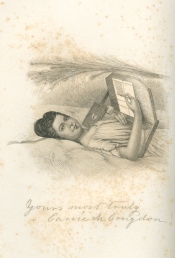Doing It Themselves: Radical Homemaking in the 21st Century. Due Dec. 15
Until now writers and bloggers have argued that radical homemakers (sometimes called “femivores”), people who have turned toward a more self-sufficient, DIY-centered approach to domesticity, allows practitioners to live “lives that honor ecological sustainability, social justice, family, and community,” as Shannon Hayes points out. With the publication of Emily Matchar’s Homeward Bound: Why Women are Embracing the New Domesticity in 2013, along with Hayes’s Radical Homemakers: Reclaiming Domesticity from a Consumer Culture, and Kelly Coyne and Erik Knutzen’s Making It: Radical Home Ec for a Post-Consumer World, both in 2010, radical homemaking has both theoretical and practical approaches. This panel seeks to explore the various and divergent aspects of radical homemaking, its intersections with class, gender, sexuality, race, as well as with the conference’s themes of investigating the “various flows of feeling good, furiously good.” Continue reading
